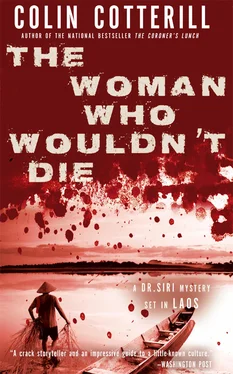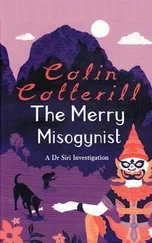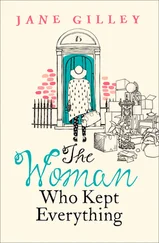Colin Cotterill - The Woman Who Wouldn't die
Здесь есть возможность читать онлайн «Colin Cotterill - The Woman Who Wouldn't die» весь текст электронной книги совершенно бесплатно (целиком полную версию без сокращений). В некоторых случаях можно слушать аудио, скачать через торрент в формате fb2 и присутствует краткое содержание. Жанр: Триллер, на английском языке. Описание произведения, (предисловие) а так же отзывы посетителей доступны на портале библиотеки ЛибКат.
- Название:The Woman Who Wouldn't die
- Автор:
- Жанр:
- Год:неизвестен
- ISBN:нет данных
- Рейтинг книги:3 / 5. Голосов: 1
-
Избранное:Добавить в избранное
- Отзывы:
-
Ваша оценка:
- 60
- 1
- 2
- 3
- 4
- 5
The Woman Who Wouldn't die: краткое содержание, описание и аннотация
Предлагаем к чтению аннотацию, описание, краткое содержание или предисловие (зависит от того, что написал сам автор книги «The Woman Who Wouldn't die»). Если вы не нашли необходимую информацию о книге — напишите в комментариях, мы постараемся отыскать её.
The Woman Who Wouldn't die — читать онлайн бесплатно полную книгу (весь текст) целиком
Ниже представлен текст книги, разбитый по страницам. Система сохранения места последней прочитанной страницы, позволяет с удобством читать онлайн бесплатно книгу «The Woman Who Wouldn't die», без необходимости каждый раз заново искать на чём Вы остановились. Поставьте закладку, и сможете в любой момент перейти на страницу, на которой закончили чтение.
Интервал:
Закладка:
He edged his paint tin a little closer.
‘So, you have nothing to say to me?’ said Siri.
He waited for an answer. Looked around for subliminal messages. Closed his eyes in search of a vision. The chickens clucked in the next room. He wondered if that were a sign. He clucked back. He waited. No. They were just chickens. He was alone again. His two guides were lost, Auntie Bpoo, the cantankerous transvestite fortune-teller, to her going away party in a week, and Madame Peung, silent as the grave. Why was this all so difficult? He just wanted to talk to ghosts. That was all.
*
Inspector Phosy had little use for a clock. He worked until the work was done or until he fell face down on to his desk from fatigue. As his office was only twenty minutes on foot from the police dormitory, he used the walk to clear his head of all the legal clutter. Apart from the passing curfew patrols there was nobody on the street after ten. He could admire the stars and take lungfuls of air that weren’t seasoned with smog or smoke. He could filter out the news he would not tell his wife, like a description of the crushed face of the Lane Xang Hotel gardener they’d pulled from the pool. He could organize the unavoidable, like his imminent dispatch to Vieng Xai to train another batch of reluctant soldiers in the art of policing.
The voice came from a bank of hedges he’d just passed.
‘I have a gun pointed at the back of your head,’ it said. ‘I never miss. Don’t turn around.’
The accent was Vietnamese. Phosy stopped and held up his palms in front of him. He was unarmed.
‘Good boy,’ said the voice.
‘What do you want?’ Phosy asked.
‘Facts.’
‘The Ministry of Information has a whole department full.’
‘Don’t get cute, cop. The last patrol passed three minutes ago. It’ll be an hour before the next one finds your body. Nobody around to hear the shot. Keep that in mind next time you get the urge for stand-up comedy.’
‘You’re right. I’m sorry.’
‘That’s better,’ said the voice.
Phosy had a suspicion the man was speaking from the back of his throat to sound more threatening. The gunman stepped out of the vegetation and came up close behind Phosy. So close that the policeman felt the mouth of the gun in the small of his back. It was a stupid move. Amateurish. It told Phosy three things: exactly where the weapon was, exactly where his adversary was, and the fact that the fellow didn’t have a lot of experience in this hoodlum game.
Phosy spun to one side, swept the gun away with his right hand and thumped his left fist into the side of the gunman’s face. He was out of practice but he still heard the satisfying click of a cheekbone fracturing. The rest of the punches had probably been unnecessary but Inspector Phosy was very touchy about having guns pointed at him.
Madame Daeng had headed away from the riverbank foolishness and the noise of revellers and found that old wooden swing in the garden of the administrator’s office. She lowered herself slowly on to the seat and listened to the cries of the cicadas. She admired the panorama of stars, the trails of lightning bugs joining the celestial dots. She considered her good fortune and sighed with every memory that came to her. To have succeeded and survived. To have known great people. To have been reunited with the love of her life. And what a good life it had been.
I was pregnant when I met him. A Frenchman’s child, I told him. A general. It was more than enough to keep a junior officer at arm’s length. But still I smiled at him and he came to the noodle shop for his lunch. I was in my early forties by then but I was blessed with good skin and a youthful face. I often claimed to be in my late twenties. The French had no idea how old we were. We were a different species .
Our head of clandestine operations had pointed him out to me. The Frenchman was tall, good looking. But, more importantly, he was a courier. He had his pouch with him all the time and, in the daytime, an armed aide. We spoke, me with my poor French. My bashfulness. I knew how to flirt by then. Knew what effect I had on a man. And then, one day just before he left for Saigon, I took his hand and put it on my belly .
‘What the …?’ he said .
‘It’s a pillow,’ I told him. ‘I’m sorry I lied to you. I wear it to keep away the soldiers. A terrible thing happened to me once. So this is what I do to stay safe. Nobody else knows. Only you. I really want you to know. I hope you don’t mind.’
It always worked. It was a big ego boost to the men who had little success with women. And I could tell he was new at this romance game. In no time at all we were together. Of a night, my round pregnancy pillow sat comically on the chair beside the bed. We laughed about the fact that I’d been pregnant to that scoundrel of a general for three years without a break. He thought it was a lovely story. That I was lovely. He was wild for me. I told him that he was the first man I had volunteered myself to. Such a confession tends to make a man stupid and careless .
He’d returned from Paris that particularly important night. He came straight to my room. He was still in uniform. He was carrying a briefcase. I’d been through his pouches before but I had the feeling this was something much more important. I produced a bottle of champagne and told him a West African member of the French legion had given it to me one day as he was about to board the ferry. I thought he must have stolen it so I didn’t feel guilty to have brought it home. I’d saved it for a special day. I honestly believed this was it. We drank. The excitement of the day. The heat. The exhaustion of love. He fell asleep. I knew it was a sleep deeper than any he’d ever known .
By the time he woke, the briefcase was locked and the papers seemingly untouched, and I was still naked beside him. But he was late. An Aeronavale was waiting to take him to Vietnam. Everything rested on the contents of that briefcase. Everything .
‘Mademoiselle. Mademoiselle.’
Daeng was stirred from her reverie. A dark shape loomed in front of her, a silhouette against the lights at the riverside and a rising moon.
‘ Mon capitaine ,’ she replied.
‘One of thousands, I don’t doubt,’ he said.
‘I’m impressed that you found me,’ said Daeng.
‘When the wolf scents blood …’
‘I’m not bleeding, monsieur .’
‘Oh, yes you are. You may not admit it. Not yet. But you have been bleeding for many decades. You are still bleeding for all my brothers you led to their deaths.’
‘And who’s bleeding for all my brothers and sisters?’ she asked.
The Frenchman took two paces towards her. She could make out the outline of a stick or a bar in his hand. He lifted it and rested it on his shoulder. It seemed heavy. Iron, perhaps. Madame Daeng had no doubt whatsoever what he intended to do with it.
‘Two hundred of your kind are not worth one Frenchman,’ he said.
Daeng laughed.
‘That’s the attitude that made you so popular in the colonies, my captain. The attitude that lost you Dien Bien Phu. Or is that a touchy subject?’
‘We did not lose that battle.’
‘No?’
‘No.’
‘The history books would have it otherwise.’
‘It was the Americans and the British who lost it.’
‘No it wasn’t. It was arrogance. You assumed you’d have air support from the Allies so your generals dug in to a non-defendable position. They knew for sure their old friends would get them out of yet another mess.’
‘I’m not here to have this conversation with you.’
‘Yes you are. This is one of those “get it all out in the open” murders my husband hates so much. If you’d wanted me dead without any exchanges you’d have crept up behind me and cracked my skull in two. You have things to say. Perhaps you want to hear my confession before you dispatch me. You want to justify my death with some sort of righteousness. Well, you’re in the wrong place.’
Читать дальшеИнтервал:
Закладка:
Похожие книги на «The Woman Who Wouldn't die»
Представляем Вашему вниманию похожие книги на «The Woman Who Wouldn't die» списком для выбора. Мы отобрали схожую по названию и смыслу литературу в надежде предоставить читателям больше вариантов отыскать новые, интересные, ещё непрочитанные произведения.
Обсуждение, отзывы о книге «The Woman Who Wouldn't die» и просто собственные мнения читателей. Оставьте ваши комментарии, напишите, что Вы думаете о произведении, его смысле или главных героях. Укажите что конкретно понравилось, а что нет, и почему Вы так считаете.












